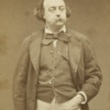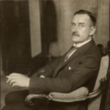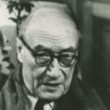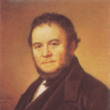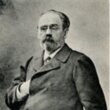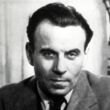The Guermantes way
Author
Series
Publisher
Varies, see individual formats and editions
Publication Date
Varies, see individual formats and editions
Language
English
Description
1. Time is a central concern for Proust, appearing first in the title and last as the final word of the novel. What is his vision of the past? Does he have a vision of the present? The future? Can the Narrator be said to be living in the past? Is he like the White Queen in Through the Looking-Glass , with 'jam tomorrow and jam yesterday - but never jam today'? 2. The renowned translator of Proust, C. K. Scott Moncrieff, originally grouped the opening section of In Search of Lost Time under the title 'The Overture,' which includes two famous passages, the good night kiss and the evocative taste of the madeleine. Does this seem apt? If so, how might this fifty-odd page beginning prefigure what will transpire later? What would you expect to follow, given that an overture usually introduces the main themes of a musical work? What does it suggest about Proust's conception of literature and music? 3. The episode of the good night kiss strikes some readers as odd or contradictory: the Narrator's need for a kiss seems almost infantile, while his power of observation seems extraordinarily precocious. Considering that he is sent to bed at eight o'clock, how old do you think the Narrator is? Is it significant that his father suggests the Narrator be given the kiss he craves, whereas his mother is reluctant, saying 'We mustn't let the child get into the habit . . .'? Is the fact that the Narrator succeeds in getting the kiss he wants a good thing or a bad thing? Why? 4. 'The whole of Proust's world comes out of a teacup,' observed Samuel Beckett. Indeed the episode of the madeleine dipped in tea is the first (and most famous) of numerous instances of 'involuntary memory' in the novel. A recognized psychological phenomenon triggered by smells, tastes, or sounds, involuntary memory vividly reproduces emotions, sensations, or images from the past. Why do you think readers and critics universally consider this scene to be pivotal? What does the Narrator think about the experience of involuntary memory? What might its function be in the scheme of In Search of Lost Time ? 5. Another emblematic theme involves the recurring 'little phrase' of music by Vinteuil that catches the ear of Swann at the Verdurin's salon and steals into his life. How do Vinteuil's compositions stir both Swann and the Narrator? In Proust's scheme of things, is music a higher art than painting or writing because it can produce involuntary memories? How does involuntary memory affect writing and painting? Is it unrelated to art except as a necessary catalyst? 6. In 'Combray' we are introduced to the Narrator's family, their household, and their country home. Since Paris is the true heart of upper-class France, why do you think Proust chose to begin In Search of Lost Time elsewhere? What do we learn from the Narrator's description of his family's life and habits? Is the household dominated by men or by women? Does the Narrator's account seem accurate, or is it colored by his own ideas and preoccupations? 7. A madeleine dipped into a cup of tea first impelled Proust into the 'remembrance of things past.' Though Proust was a gourmet in his youth, in the final years of his life he subsisted mainly on fillets of sole, chicken, fried potatoes, ice cream, cakes, fruit, and iced beer. Consider how food and culinary happenings - from meals at the restaurant in the Grand Hotel in Balbec to dinners at La Raspelière and the Guermantes's in Paris - form an integral part of the work. 8. Swann's Way and the Guermantes Way are presented as mutually exclusive choices for promenades, with Swann's Way given primacy of place at the novel's outset. Where, metaphorically speaking, does Swann's Way seem to lead? What are the aesthetic signposts and milestones the Narrator points out? What does the landscape around Combray represent? 9. 'I want my work to be a sort of cathedral in literature,' Proust once said. In his description of the area around Combray - and in many other places in the novel - the Narrator describes churches, and particularly steeples. Indeed, Howard Moss cites the steeple as one of Proust's most important symbols. In religious architecture, the steeple represents man's aspiration toward God, and by inference toward Art, the Proustian religion. What else might it suggest? Does it have a counterpart in nature? 10. Proust and the Narrator share an appreciation of gardens and flowers - Proust himself was eager to visit Monet's celebrated garden - and in a sense, all Combray can be seen as a garden. What associations does this evoke? How does the Narrator respond to natural beauty? What do flowers mean to him? How do we know? 11. Proust's work is filled with 'doubling' - the most obvious being the identification of the author with a fictional self of the same name but with somewhat different characteristics. Is Swann a double of the Narrator? What qualities do they share? In what ways do they seem different? What is the importance of the fact that Swann is a Jew? 12. Louis Auchincloss questions the use of a fictional first person named 'Marcel,' who is but isn't Proust. Marcel claims that he is neither a snob nor a homosexual, yet he is obsessed with both. Would Proust have strengthened Marcel's viewpoint by making it that of the young social climber that he himself so clearly was? Did he enhance or detract from Marcel's credibility by casting him as one of the few heterosexuals in the book? Does it matter that Marcel regards 'inversion' as a dangerous vice? Did Proust? 13. 'Swann in Love' might be thought of as a dress rehearsal for the Narrator's own performance, and Swann's passion for Odette establishes a model for various other love relationships that appear later in the book. Proust believed that all emotions and behavior obey certain psychological laws. E. M. Forster maintained that 'Proust's general theory of human intercourse is that the fonder we are of people the less we understand them - the theory of the complete pessimist.' Do you agree? How does Swann's love affair reflect this? What conclusions does the Narrator draw from his perception of Swann's experience? In what way does this differ from Swann's own view? 14. The Balbec sequence of Within a Budding Grove gathers a group of the novel's principal characters, many for the first time: Robert de Saint-Loup, the Baron de Charlus, and Albertine, to name three of the most important. Others begin to emerge in their true significance, like Elstir the painter. Why do you think Proust chose to bring them together in Balbec? In what ways does Balbec echo or amplify Combray? Is the little 'society' of Balbec a preview in microcosm of Paris? 15. While writing In Search of Lost Time Proust often rummaged through his vast photographic collection of Belle Époque luminaries as a means of stimulating his memory. 'You could see that his thoughts were following a kind of underground track, as if he were organizing everything into images before putting them into words,' recalled his maid Céleste Albaret. Indeed, the Baron de Charlus, in Within a Budding Grove , speaks of the special importance of photographs in preserving an unsullied moment of time past, before it has been altered by the present. Discuss how Proust used photographs in the story - just as he exploited the technology of trains, cars, and airplanes - as symbols of passing time. 16. In his landmark essay on Proust, Edmund Wilson praises the broad Dickensian humor and extravagant satire that animate vast sections of In Search of Lost Time , yet he goes on to call it 'one of the gloomiest books ever written.' Can you reconcile Wilson's remarks? 17. Critic Barbara Bucknall maintains that 'no Proustian lover really cares at all for his beloved's feelings.' Is this true? Would the Narrator agree? Would the
More Details
Contributors
ISBN
9780143039228
Table of Contents
From the Book - First American edition.
Introduction / Mark Treharne --
A Note on the Translation / Lydia Davis --
Synopsis.
Excerpt
Loading Excerpt...
Similar Series From Novelist
NoveList provides detailed suggestions for series you might like if you enjoyed this book. Suggestions are based on recommendations from librarians and other contributors.
These multi-volume autobiographical novels are richly detailed explorations of their authors' lives. In Search of Lost Time is characterized by complex prose that ties together strands of the narrator's life, while My Struggle is a little more straightforward. -- Michael Shumate
These brutally candid autobiographical novels, told by older men looking back, are artistic coming-of-age stories that also explore antisemitism and sexual obsession. Sexual material in both is emotionally wrenching but sometimes explicit in Mercy of a Rude Stream. -- Michael Shumate
These series are both emotionally rich, unique reading experiences, each presented as a sudden return of lifelong memories told by an older narrator, a writer looking back. Both feature complex characterization and richly detailed portraits of social milieus. -- Michael Shumate
These series have the appeal factors reflective, stylistically complex, and nonlinear, and they have the genres "literary fiction" and "psychological fiction"; the subjects "memories" and "growing up"; and characters that are "introspective characters."
These series have the appeal factors reflective and stylistically complex, and they have the genres "classics" and "autobiographical fiction"; and characters that are "complex characters."
These series have the appeal factors reflective and stylistically complex, and they have the genres "psychological fiction" and "literary fiction"; and characters that are "complex characters."
These series have the appeal factors reflective, melancholy, and stylistically complex, and they have the genre "literary fiction"; and characters that are "complex characters."
These series have the appeal factors reflective and stylistically complex, and they have the genres "classics" and "literary fiction"; and characters that are "complex characters."
These series have the appeal factors reflective and stylistically complex, and they have the genres "literary fiction" and "psychological fiction"; the subject "social life and customs"; and characters that are "complex characters."
Similar Titles From NoveList
NoveList provides detailed suggestions for titles you might like if you enjoyed this book. Suggestions are based on recommendations from librarians and other contributors.
These books have the appeal factors reflective and stylistically complex, and they have the genres "translations -- french to english" and "literary fiction"; the subject "memories"; and characters that are "complex characters."
These books have the appeal factors haunting and stylistically complex, and they have the genre "literary fiction"; and the subjects "romantic love," "life," and "love."
These books have the appeal factors haunting and stylistically complex, and they have the genres "translations -- french to english" and "literary fiction"; the subject "alienation"; and characters that are "flawed characters."
NoveList recommends "My struggle" for fans of "In search of lost time". Check out the first book in the series.
These books have the appeal factors stylistically complex and leisurely paced, and they have the genre "psychological fiction"; the subjects "romantic love," "memories," and "marriage"; and characters that are "complex characters."
These books have the appeal factors romantic and stylistically complex, and they have the theme "toxic relationships"; the genres "translations -- french to english" and "literary fiction"; and the subjects "lovers," "romantic love," and "love."
NoveList recommends "Neapolitan novels" for fans of "In search of lost time". Check out the first book in the series.
These books have the appeal factors stylistically complex and leisurely paced, and they have the genres "classics" and "literary fiction"; and characters that are "complex characters."
These books have the appeal factors moving and stylistically complex, and they have the genres "translations -- french to english" and "literary fiction."
These books have the appeal factors reflective and stylistically complex, and they have the genres "translations -- french to english" and "literary fiction"; the subjects "memories" and "loss"; and characters that are "complex characters."
These books have the appeal factors reflective and stylistically complex, and they have the genre "literary fiction"; the subjects "homosexuality" and "desire"; and characters that are "introspective characters" and "complex characters."
These books have the appeal factors reflective, stylistically complex, and unconventional, and they have the genres "translations -- french to english" and "translations -- italian to english."
Similar Authors From NoveList
NoveList provides detailed suggestions for other authors you might want to read if you enjoyed this book. Suggestions are based on recommendations from librarians and other contributors.
Both Karl Ove Knausgaard and Marcel Proust use hyperrealistic detail and honesty to tell the stories of their lives, loves, losses, and quests to authorhood in series of reflective, lyrical autobiographical novels. Though Knausgaard is more emotionally intense while Proust is less linear, both authors create immersive reading experiences. -- Melissa Gray
These authors are known for their richly descriptive autobiographical novels, which follow their lives from early childhood to discovering their calling as artists. Both writers also candidly portray their social worlds, including a strong sense of place and era. -- Michael Shumate
Wildly different in many ways, these innovative, contemporaneous novelists are hard to separate historically. Though both are closely associated with stream-of-consciousness narration, James Joyce's prose frequently comes across as richly textured, moment-to-moment experience, whereas Marcel Proust's extends backward through time as his narrator searches his past. -- Michael Shumate
These authors' works have the appeal factors melancholy and lyrical, and they have the genres "classics" and "literary fiction"; the subjects "social life and customs" and "former lovers"; and characters that are "complex characters."
These authors' works have the appeal factors lyrical, evocative, and stylistically complex, and they have the genre "literary fiction"; and characters that are "flawed characters" and "introspective characters."
These authors' works have the appeal factors reflective, haunting, and lyrical, and they have the genres "literary fiction" and "psychological fiction"; the subjects "memories" and "loss"; and characters that are "complex characters" and "flawed characters."
These authors' works have the appeal factors melancholy and lyrical, and they have the genre "literary fiction"; and the subjects "memories," "social life and customs," and "former lovers."
These authors' works have the appeal factors evocative, stylistically complex, and leisurely paced, and they have the genres "classics" and "literary fiction"; the subjects "growing up," "introspection," and "mothers and sons"; and characters that are "introspective characters."
These authors' works have the appeal factors reflective and lyrical, and they have the genre "psychological fiction"; the subjects "social life and customs," "introspection," and "former lovers"; and characters that are "flawed characters" and "complex characters."
These authors' works have the appeal factors reflective and lyrical, and they have the genre "literary fiction"; and the subject "former lovers."
These authors' works have the appeal factors reflective, moving, and lyrical, and they have the genre "literary fiction"; the subjects "social life and customs" and "former lovers"; and characters that are "complex characters."
These authors' works have the appeal factors reflective, melancholy, and lyrical, and they have the genres "classics" and "literary fiction"; the subject "memories"; and characters that are "complex characters" and "flawed characters."
Reviews from GoodReads
Loading GoodReads Reviews.
Staff View
Loading Staff View.

































